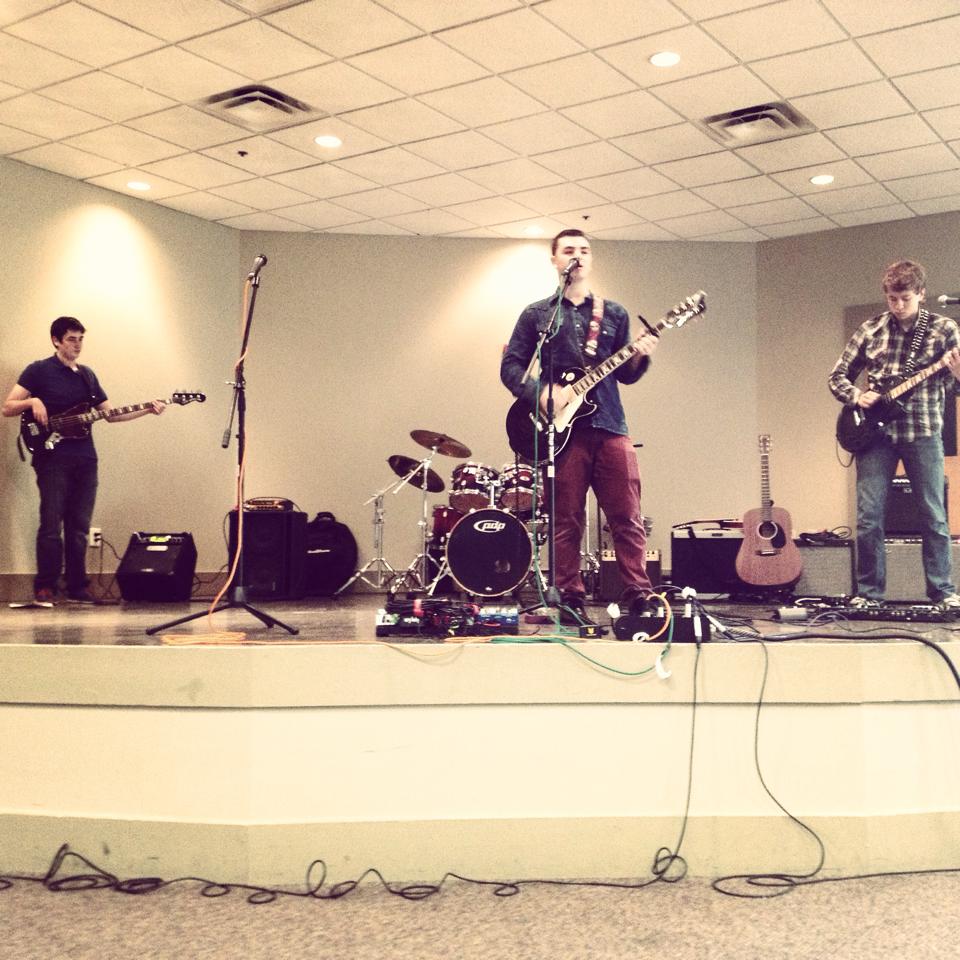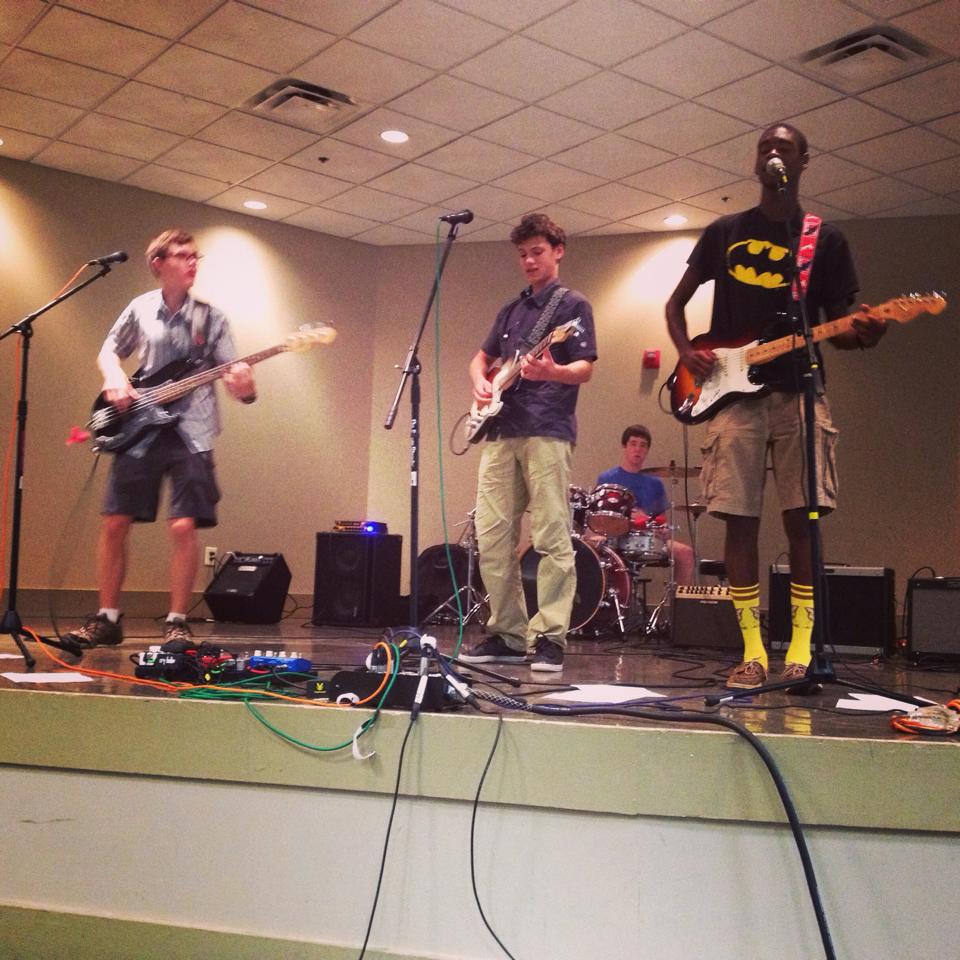
Etz Chaim Kadima Songwriting Workshop!
Director and founder, Nick Edelstein brought our acclaimed Judaic Mosaic Songwriting Workshop to Congregation Etz Chaim Kadima on Sunday afternoon. Here's what the kids created in just one hour!
Modern Israeli Music Combines Old and New
Here at Judaic Mosaic, we recognize that today's music is rooted in the past. We give campers a healthy dose of Israeli music history, so they can better understand the complex perspectives of modern Jewish artists - both within our homeland and abroad.
Our favorite Israel specialist, Eli Sperling spoke on this subject last Monday at Moishe House. Atlanta Jewish Times writer Benjamin Kweskin observed:
In the mid-1960s, Israel’s first prime minister, David Ben-Gurion, refused to allow the Beatles to perform in Israel so as not to corrupt the youth. It’s hard to imagine he would have allowed Elton John, Ozzy Osborne, Lady Gaga, Madonna or Rhianna, all of whom have recently performed in Israel.
A dozen young people gathered in the spacious living room at Moishe House Decatur on Monday, Aug. 24, happy to see their friends and to fill their bellies with falafel, baba ganoush, tahini, Israeli salad, and a special drink mix of Tito’s vodka and pomegranate juice — a Tel Aviv staple introduced by the evening’s presenter, Eli Sperling.
An Israel specialist and assistant project coordinator at the Institute for the Study of Modern Israel at Emory University, Sperling conveyed how Israeli music has changed and been affected by fluid political and demographic realities the past 70 years.
Sperling provided several songs picked to represent changes in Israeli culture, from pre-state to today. They represented different time periods, socio-political realities, racial tensions, and political and ideological expressions.
He said the pre-state yishuv (Jewish community) focused on building a “new Jew” through political and cultural cohesion focused on molding a “new Hebrew culture” for the immigrants, mostly Ashkenazi Jews from Europe. The first song Sperling presented, “Kinneret” (Sea of Galilee) by the poetess Rachel, spoke to the strong connection to the land. But the romantic melody was offset by the second song, “Shir Betar” (Song of Betar), a militaristic march highlighting strength and renewal. Both songs, representing the two main conflicting political streams of Zionism, were hits.
From 1950 to 1952, Sperling said, nearly 1 million Mizrahim (Jews from Muslim-majority countries) arrived in Israel, causing a huge demographic change. Israel’s cultural and political dynamics began to shift. Many of the new immigrants were Middle Eastern Jews: They spoke Arabic, Farsi and Turkish and listened to Middle Eastern music. Essentially, Mizrahim represented the “culture of the enemy” because of Israel’s lack of regional recognition.
By the 1970s, Mizrahim made up nearly half of Israel’s Jewish population but did not feel equally represented culturally and politically, and economic disparities were abundant. To show the dual Israeli realities, Sperling played a ’70s hit by Miri Aloni, “Shir L’Shalom” (Song for Peace). The message spoke to an external peace with Israel’s neighbors while neglecting to address the internal woes of Israel’s underclass.
As a counter, Sperling played the counterculture band Ha’Brera Ha’Tivit’s hit “Yeladim zeh Simcha” (Children Are Happiness), a satire aimed at the elite’s assumption that Mizrahim were there only to make babies and were content to do menial work.
Sperling reiterated that music in Israel, like everywhere else, is a reflection of the population — its diverse cultures, ideologies and political realities. Mirroring American culture to a degree, hip-hop has become increasingly popular in Israel.
The first of two hip-hop songs Sperling played was “Tikva” (Hope) by Subliminal and the Shadow, a Mizrahi duo raised in underprivileged neighborhoods. The song references the daily struggles and realities of Israelis. In stark contrast, Mooki D’s “Kulam Medabrim al Shalom” (Everyone’s Talking About Peace), performed by a middle-class Israeli, is friendlier and lighter.
The last song — a crowd favorite — was performed by the new trio A-wa, three Yemenite-Israeli sisters whose Arabic song, “Habib Galbi” (My Love, My Heart), is infused with an uptempo, hip-hop dance beat. The song epitomizes the convergence of the music of the first generation with the music of the current generation.
The new Israeli music to a significant degree has successfully combined the old and new, Western and Eastern.
The original article is here.
Temple Emanu-El Street Fair
We were thrilled to do a post-camp event in August 2014 at Temple Emanu-El's back-to-school / back-to-shul block party. The "street fair" included delicious food trucks and ... Judaic Mosaic campers rocking out! Congrats to our bands for doing such an awesome job and getting the kids dancing. Here are some pics from our Instagram feed:
Kosher Noise on WREK 91.1 FM
One of our 2014 alum, Miles Cohen got to perform his song "Get Up" during WREK's "Kosher Noise" program. Check it out!




